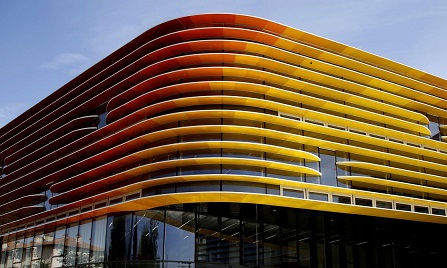NEO-LATINES STUDIES AND AIX-EN-PROVENCE > Neo Latin studies in Aix-en-Provence
Neo-Latin studies ... a long tradition at the Faculty of Letters of Aix-en-Provence Let us first mention two precursors of the second half of the 19th century: - The professor of French literature, Norbert Bonafous (1809-1882) who did his complementary thesis on Angelo Poliziano (De Angeli Politiani vita et operibus disquisitiones, Paris, 1845) and became interested in Provençal Macaronic Latin (edition of Antoine Arena, Meygra Entrepriza caroliqui imperatoris ..., Aix 1860). - The historian, Georges Guibal (1837-1905), whose Latin thesis was on the humanist Jean Boyssonné (De Joannis Boyssonnei vita, seu de litterarum in Gallia meridiana restitutione, Toulouse 1863). However, research into Neo-Latin at the Faculty of Letters really began with Claude-Henri Frèches (1914-2006), who was professor of Portuguese from 1966 to 1982 and who wrote his thesis on Le Théâtre néo-latin au Portugal 1550-1745 (Paris, Nizet and Lisbon, Bertrand 1964), which won the Camoëns Prize. Finally, from the 1980s onwards, within the Department of Comparative Linguistics of Romance Languages and Romanian (LIRROU), an optional training programme was created which was widely open to students of the arts, literature and languages, , in particular, in Romance languages, as well as to those in the SHS sector (History, History of Art, Psychology) or in international exchanges (Erasmus +, Civis), with, first of all, the two courses given by Jean-Louis Charlet on 'Latin humanist poetry' and on 'the debate on the Latin language'; then, with the thematic courses in neo-Latin literature and civilisation given by the current team: Béatrice Charlet-Mesdjian and Carine Ferradou. |


